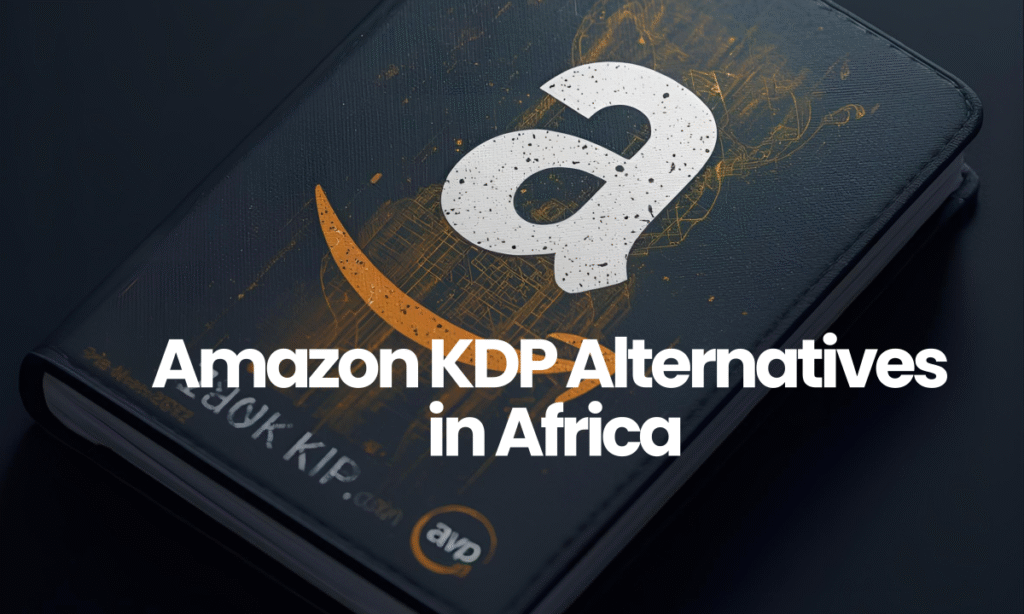Introduction
For many African authors, Amazon Kindle Direct Publishing (KDP) has been a go-to platform for publishing ebooks and print-on-demand (POD) titles. But KDP has some limitations for Africans—issues like payment, currency conversion, strong competition, discoverability, and sometimes high costs or unfavorable terms.
Fortunately, there are several local viable alternatives that can meet these challenges better. This guide explores the top KDP alternatives relevant to authors in Africa, analyzing pros, cons, and what to watch out for.
Why Look Beyond KDP?
Before diving into alternatives, it helps to understand the key pain points authors face with KDP in Africa:
- Payment and royalty issues: Delays, unfavorable currency exchange, difficulty receiving payments in certain countries and lower royalty rate paid to Africans.
- Discoverability and visibility: KDP is crowded; getting traction requires marketing, visibility.
- Print-on-demand costs / shipping: Getting physical copies into local bookstores or to readers in Africa can be costly or logistically difficult.
- Local relevance: Language, local payment methods, cultural context, pricing in local currencies, and local distribution are often better addressed by homegrown platforms.
Knowing these will help you evaluate whether an alternative is better for your situation.
Top Amazon KDP Alternatives for African Authors
Below are local and global options that can be especially good for African writers, with their strengths and trade-offs.
AfricaRead
1. Base / Primary Market: Pan African
2. What it Offers & Strengths
One of the largest self-publishing platforms in Africa. Offers very high royalties (around 90%) and supports local payment methods. Strong local focus and easier access for African authors.
3. Things to Watch Out For / Limitations
Might have less international exposure than Amazon. Physical print distribution may be limited, depending on your country. Marketing reach may be less global.
4. Formats
Primarily ebooks. Has a mobile reader app, local content. Probably less focus (or no mention) on audiobooks or print-on-demand in many cases.
5. Payment Methods & Currency
Local payment options: mobile money, M-Pesa in supported countries, local payments and pricing.
6. Basic marketing support
Author dashboard, simple tools; guidance on marketing; writing training courses; mobile app to help with reach, but perhaps less emphasis on global marketing / AI tools.
how-to-self-publish-a-book-in-nigeria
7. Strengths
1. High royalty share (≈ 90%) meaning authors keep more of the revenue per sale.
2. Strong local payment support and pricing in local currencies (mobile money, M-Pesa etc.), which removes friction for local readers.
3. Author training is built in (free writing/course support) which helps authors improve their craft and understand publishing better.
4. Good user/reader accessibility via mobile app; helps with discovering and reading books locally.
ITAN Global Publishing
1. Base / Primary Market: Pan African/ African Diaspora
2. What it Offers
A self-publishing / writers’ marketplace platform. Its aim is to overcome some of the systemic issues African authors face with global platforms (visibility, fair pay, payment logistics, discoverability) and provide tools to reach both African and international readers.
3. Key Features
- Multiple Formats: Ebooks, audiobooks; print-on-demand (via partner) for physical books. Multilingual support.
-
Free book uploads. Zero upfront cost.
- Payment Methods & Currency: Enables hassle-free royalty payments, possibly local currency, and smoother cross-border payment solutions.
- Visibility / Marketing / Discoverability: Emphasis on marketing support, AI-powered discovery tools, translation to multiple languages, efforts to reach global audience. Provides tools/training (e.g. “Itan Publishing University”) for authors.
4. Strengths
- Tailored for African authors. Empowers African Authors by making their works visible on global stage
- Global outlook: translations, reaching Diaspora and international readers, multiple formats. The Scribes Media+1
- Fair payment practices promised: simpler royalty payments, in preferred currencies, fewer middlemen. The Scribes Media+1
- No or minimal upfront cost (free uploads) helps reduce barrier to entry.
itan-global-publishing-now-accepting-fiction-submissions
How to Choose the Best Alternative for You
Here are steps to help decide what’s best:
1. Identify Your Audience: Are most of your readers local (within your country / Africa), or international (Diaspora, global)?
2. Format Preference: Just ebook? Physical book? Both? If you want print, POD + local printing or distribution is crucial.
3. Payment & Legal Considerations: Can you receive payments easily? Are there tax or currency-exchange issues?
4. Marketing & Visibility: A platform might have great terms, but if your book never gets seen, it won’t sell. Think about how discoverable it will be and what support is available.
Conclusion
Amazon KDP is powerful and useful, but it isn’t always the best or only option—especially for African authors who want better local reach, easier payments, or more favorable terms.
Platforms like ITAN Global Publishing, AfricaRead, and local hybrid publishers present strong alternatives. The best choice depends on your goals: whether local vs international readership, digital vs print formats, and how much support or investment you want to put in.




